Philanthropy and Volunteerism
Lizzie Spiegel Barbe
Lizzie Spiegel Barbe, a member of a prominent Chicago family, devoted more than fifty years of her life to being a clubwoman and leader within the Chicago Jewish community. Like other “Jewish Clubwomen” of this era, Barbe was motivated to establish leadership roles for women that had previous not existed within the organized Jewish community.
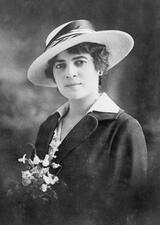
Clarice Baright
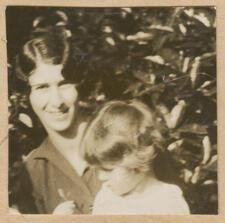
Dorothy Walter Baruch
Psychologist Dorothy Walter Baruch championed the health development of children as an educator, author, psychologist, and as a community leader. Her psychodynamic approach to child development focused on the relationship between physical, emotional, and intellectual development and on rechanneling children’s feelings through play and art therapy.
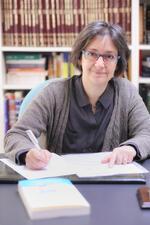
Pauline Bebe

Jessica Beckerman
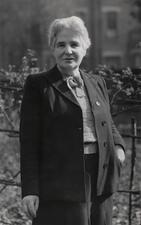
Helen Bentwich
Helen Bentwich was an active community organizer, activist, and local politician. She and her husband, Norman, aided in helping people escape Nazi persecution and split their time between Palestine and England for many years.
Margarete Berent
Margarete Berent was the first female lawyer to practice in Prussia and the second female lawyer ever licensed in Germany. In 1925 she opened her own law firm in Berlin and, after fleeing Nazi Germany, opened her own firm in the United States. Not only was she the first female lawyer and the head of her own law firm, but she was also an ardent feminist and active in promoting opportunities for women.
Beatrice Berler
Beatrice Berler was an award-winning translator of Spanish-language novels and history and a renowned community activist. She worked in women’s fashion for over twenty years before returning to school at the age of forty-five, eventually becoming nationally recognized as a literacy activist.
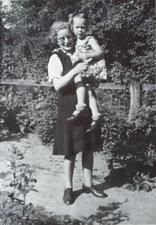
Clementine Bern-Zernik
A lawyer by training, Vienna-born Clementine Bern-Zernik produced broadcasts for the US Office of War Information in London during the war, served as the director of a Displaced Persons Camp in post-war Germany, and spent the last 50 years of her life as a UN liaison to the New York Public Library. Throughout her life she maintained a strong Austrian identity and was a founding member of the Austrian-American Federation.
Dorothy Lehman Bernhard
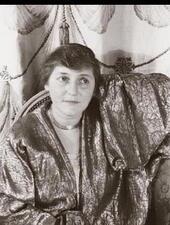
Aline Bernstein
Aline Bernstein was one of the first theatrical designers in New York to make sets and costumes entirely from scratch and craft moving sets. She designed sets for the Theatre Guild and various independent producers, winning numerous awards for her work, including a Tony for costume design for Regina in 1949. She later founded the Costume Museum and began writing fiction.
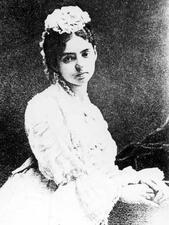
Felicie Bernstein
Felicie Bernstein was one of the last Berlin salonnières, a patron of modern art and artists, and a philanthropist who supported early feminism.
Rebecca Thurman Bernstein
Rebecca Thurman Bernstein was lauded by local and national organizations for her efforts to improve health care, literacy, and Jewish life in Portland, Maine. Bernstein was proud of her Jewish heritage and worked for many Jewish causes, but her interests were not limited to or by her Jewishness.
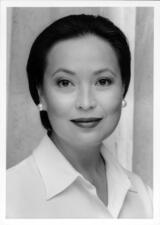
Angelica Berrie
Meta Pollak Bettman
Meta Pollak Bettman was an untiring volunteer in Jewish and civic causes in the early twentieth century.

Sara Blakely
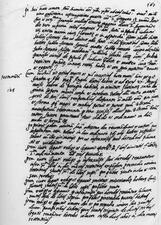
Ginevra Blanis
Ginevra Blanis was a late sixteenth-century silk manufacturer of the Florentine ghetto and Siena. She left her mark as a founder of the young community with her philanthropy and in the public communication of what she considered Jewish values in the provisions of her will.
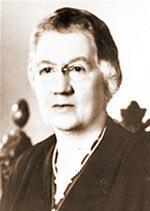
Henrietta Gittelson Blaustein
Henrietta Gittelson Blaustein was an American philanthropist. When her husband died in 1937, she became the chairperson of the Louis and Henrietta Blaustein Foundation. In 1951, the foundation awarded $1,000,000 to the Sinai Hospital and the Jewish Medical Center in Baltimore – the largest individual contribution ever made to a Jewish organization at that time.

Florence Meyer Blumenthal
Florence Meyer Blumenthal, an extraordinary philanthropist and arts patron, organized her own arts foundation in Paris, and donated millions of dollars to established institutions and public charities in America and France. Blumenthal’s foundation funded hundreds of promising artists and allowed them to focus on pursuing their craft.
Madeleine Borg
Madeleine Borg, a juvenile rights advocate, is known for reframing juvenile rehabilitation efforts in both Jewish and non-Jewish communities. Borg founded the American Big Sisters movement in 1912 and went on to establish the Council Home for Jewish Girls.

Sivan Borowich-Ya'ari
Anna Pavitt Boudin
A dentist by career, Anna Pavitt Boudin is remembered for her prominent role in the American’s Women ORT. While maintaining her own private dental practice, Boudin became the founding president of Women’s American ORT, an organization that grew to be one of the largest Jewish women’s organizations in the United States.
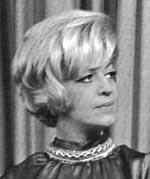
Brazil, Contemporary
Brazil is home to the second largest Jewish community in South America. Jewish women played important roles in the absorption of Jewish immigrants from Europe, the Middle East, and North Africa, and also made important contributions to Brazilian intellectual and artistic life.
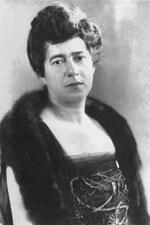
Rose Brenner
As president of the National Council of Jewish Women, Rose Brenner focused on inclusion of people who were often marginalized—the deaf, the blind, and those isolated in rural areas.
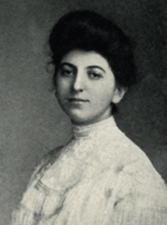
Fanny Fligelman Brin
A riveting public speaker, masterful politician, skilled organizer, and administrator, Fanny Fligelman Brin, who served two terms as president of the National Council of Jewish Women, from 1932 to 1938, is best remembered for her work on behalf of world peace during the interwar years.


